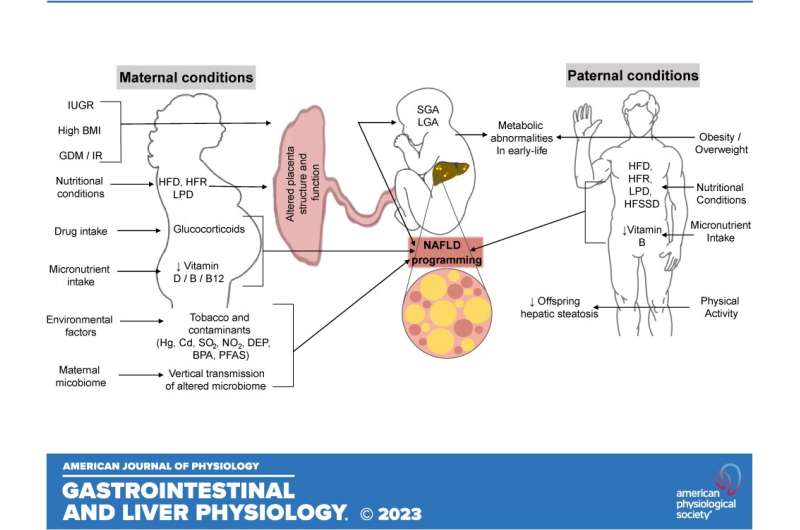This article has been reviewed according to Science X's editorial process and policies. Editors have highlighted the following attributes while ensuring the content's credibility:
fact-checked
trusted source
proofread
Prenatal stress may underlie tumors, inflammation in mice

A new mouse study suggests prenatal stress during late gestation can lead to inflammation in adult male offspring and tumor development in adult female offspring, according to researchers at the University of Toulouse in France. Activation of two key receptors in the colon, the protease-activated receptor 2 (PAR2) and muscarinic receptor 3 (M3), triggers these two adverse conditions. The findings are published ahead of print in the American Journal of Physiology-Gastrointestinal and Liver Physiology, and the study has been chosen as an APSselect article for January.
In this study, physiologists were trying to understand the roles played by critical regulators of intestinal stem cell functions during stress conditions. Pregnant mice were randomly subjected to stress, such as bright lights, from days 13–18 of gestation. The stress period ran 30 minutes each time three times a day in three-hour intervals. They found stem cells from the colons of male and female mice are regulated differently by PAR2 and M3. In males, PAR2 plays a critical role in the control of intestinal stem cell proliferation, but in females this function is supported by M3.
After birth, the function of stem cells is adversely modified due to prenatal stress, likely triggering serious intestinal conditions such as chronic inflammation and colorectal cancer. In males, the brake exerted by PAR2 on stem cell proliferation could lead to inflammation. In females, a switch of the M3 action could potentially cause abnormal cell growth that causes tumor development.
More studies are needed, but researchers believe the results of this study could be used to improve human health by targeting PAR2 and M3 receptors as an alternative therapy for inflammation and cancer.
"PAR2 and M3 antagonists, already available, might be used to restore the regeneration of the epithelium and its important role as a barrier for pathogens," said Claire Racaud-Sultan, MD, Ph.D., corresponding author of the study. "On the other hand, our work shows that colon stem cells from prenatally stressed females present a potent phenotype with the association of high survival and proliferative capacities, which could pave the way for the targeting of PAR2 and M3 to counteract tumor progression."
More information: Dax Humberto Galvan-Martinez et al, Nutritional, pharmacological, and environmental programming of NAFLD in early life, American Journal of Physiology-Gastrointestinal and Liver Physiology (2022). DOI: 10.1152/ajpgi.00168.2022



















